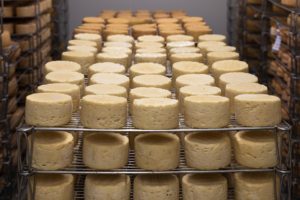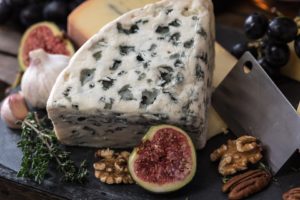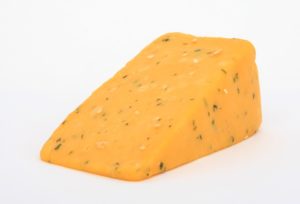Is Cheese Addictive?
Are you one of those people who just can’t have a burger without a melting slice of cheese? Or you’re the person who craves a cheesy pizza in the middle of the night? It all comes down to the love for cheese. So is cheese addictive?

Food addictions are very common these days and a cause of a lot of health issues for people. It’s a matter that is still being researched. Many studies have explored the effects of cheese on the brain and health. The results are pretty conclusive, showing cheese can be addictive.
Let’s look at how and why cheese can become like a drug for some people. And, more importantly, how one can avoid that.
How is Cheese Made?
To understand the addictiveness of cheese, you should first take a moment to grasp how cheese is really made. With hundreds of variations in existence today around the world, the processes can vary greatly. However, the base process is the same for most.
All cheese (dairy-based cheese) comes from milk. It can be any kind of milk, really. The milk is heated to an optimal temperature in which the microbes in the liquid flourish. Then comes the starter bacteria and acids. These make the proteins and fats coagulate and form a curd.
The curd is what makes the cheese. But the cheese-making process is far from over at this point. What happens next decides the texture and flavor of the cheese, so you have your parmesans, mozzarella, ricotta, brie, and other types.
Another important ingredient that goes into cheese is salt. Salt not only gives the cheese a salty flavor but also helps kill any rancid microbes that may make the curd go bad. The process of cheese-making can go on for months as new microbes chew away the protein, producing smaller amino acids, which have their own unique flavors.
Why is Cheese Addictive?
A survey study conducted at the University of Michigan tried to find the foods people found most addictive. They asked 384 individuals to fill out a survey with pertinent questions about food eating habits that border on addiction.
Can you guess which food came out on top? It’s pizza!

It’s not surprising to see pizza top this list when it’s mostly full of cheese. In fact, many people like their pizzas to be super cheesy. If the study had been about food components alone, cheese probably would have topped the list on its own, if not in the shadow of the Italian dish.
There are a couple of reasons why cheese can become addictive:
Casein
Casein is a milk protein that’s present in generous amounts in cheese. Since cheese is made from a lot of milk, it contains a lot of this protein.
Like other proteins, when casein enters your body, it is broken down into amino acids. However, unlike other proteins, casein also produces some long-chain amino acids that are called casomorphins.
Casamorphins behave like opiates. These can attach to the dopamine receptors in your brain, the same way some narcotics attach. It’s the classic reward signal system that leads to addiction, as one study in Food and Nutrition Research explores. These reward signals are not just limited to the brain but also the gastrointestinal tract as well.
If you eat cheese frequently, your brain is exposed to these casomorphins even more, and that results in cravings.
What about other protein-rich foods? Are they also addictive? Yes, they can also be addictive if consumed very often.
The effect of casein also helps explain why infants so readily nurse and often go to sleep afterward. It helps ensure that the baby craves the milk and nurses, so they get the nutrition they need to grow in such early stages of life.
Salt
Remember salt used in the making of cheese? That, too, contributes to the addictive nature of cheese. If you notice, most of the time you’re craving food, it’s typically salty food, unless, of course, you have a sweet tooth, and you’re craving donuts, too.

The need for salty food is wired in our brains, as researchers believe that salt can also activate the production of dopamine. That said, your body does need salt for nutritional purposes as well, so it’s not all bad.
Going back to cheese, most types have a somewhat salty taste, which our taste buds readily respond to.
Fats
If you’re a fan of cheese just because of its flavor, you have fats to thank for. Fat gives the cheese its distinct flavor. In fact, fat plays a key part in the great taste of many processed foods. And cheese has plenty of them!
It’s not really your fault if you crave fat-rich foods. That’s just how our bodies, and specifically, our brain works. It’s an energy-giving nutrient that our bodies are naturally wired to want more of. It doesn’t help that our tongues also have specific receptors for fats.
The aroma of cheese, which some people might find off-putting, but most people absolutely love, also springs from the fat content of the cheese. These aromas blend well with fats and oils rather than water. As a result, the aroma of cheese is strong and also excites your sense of smell.
Fats, along with casomorphins and salt, reward our brains with the release of dopamine. That, in turn, encourages us to get more of it, hence becoming addictive.
If you’re interested in reading in detail about the effects of fat on our psychology and physiology, you can check out this paper published in Nutrients magazine. It explores in depth the research that has been done on this subject and explains how fat can cause cravings in people, and also lead to health issues like obesity.
Disadvantages of Cheese
So we now understand that cheese can, in fact, be addictive. So naturally, the next important question is whether that’s even a bad thing?
Generally speaking, too much of anything in life is bad. The secret to good health is balance: not eating too little or too much of something. And somethings you should just simply avoid. Unfortunately, cheese comes into that fold.
Although certainly filling and delicious, cheese has its cons. It contains protein and calcium, which are good. However, it also contains a lot of fat and sodium.
Here are some of the reasons why you may want to avoid cheese altogether, let alone its addiction:
Increase in Risk of Heart Disease
Although some recent studies have disputed this, earlier research indicates that saturated fats can, over time, dramatically increase the risk of heart disease. As you know, heart disease is the number one cause of death in the US.
Those studies that disputed the link between heart disease and saturated fats have been part of a campaign by dairy giants around the world. Dr. Michael Greger of NutritionFacts.org talks about this at length and proves the conflict of interest in this video, ‘Is Cheese Really Bad For You.’
Weight Gain
Cheese is a high caloric-density food, i.e., more calories in a small amount of food. So the more cheese you eat, the more calories you get. And that’s how you gain all those extra pounds around your waist.

Saturated fats aren’t just bad for your heart but can also make you gain unnecessary weight. As you get addicted to eating foods with a lot of cheese, you gain weight as you’re adding calories you don’t need in the first place.
Risk of Diabetes
Again, the saturated fats in cheese can contribute to an increase in the risk of type II diabetes. Not just that, there’s also been some indication that casein in milk and other dairy products like cheese may be linked to the onset of type I diabetes. However, there’s not enough conclusive research on this particular link.
Hormonal Imbalance
Cheese may also contain hormones, including estrogen, that can create an imbalance in the body and negatively impact the endocrinal system. In fact, some researchers have linked these hormones in cheese with breast cancer, asking the Food and Drug Administration (FDA) to add warning labels to cheese products.
Casein Sensitivity
Some individuals have a casein sensitivity that results in inflammation. They may get congestion, acne, rashes, and asthma.

Excessive Phosphorous
In an adequate amount, phosphorous is good. However, if too much phosphorous ends up in your body, it’s not a good thing, especially for those with kidney disease. The kidneys will not be able to remove phosphorous from the bloodstream, and that could harm your body.
Lactose Intolerance
Those who are lactose intolerant simply cannot consume any dairy products, including cheese.
What are Some Cheese Alternatives?
The good news is that there are healthier alternatives to cheese that can give you similar flavor and texture, without the risk of addiction. There are lots of vegan cheese options you can resort to when making recipes that use cheese.

Most of these cheese alternatives are made of plant-based ingredients like soy, tree nuts, flour, coconut, or even some vegetables like zucchini or pumpkin.
You’d be surprised to see the amount of variety of vegan cheese products if you go to a vegan store or even the vegan section of any of the major supermarkets in the country.
The most popular cheese alternative in the plant-based community is nutritional yeast. For pizzas, pasta, and other such dishes which call for rich, melting, cheesy texture, nutritional yeast is the best alternative. Unlike real cheese, it doesn’t have any red flags related to health or excessive calories. So you can enjoy similar texture and flavor as you would with cheese.
Some nutritional yeast comes fortified with Vitamin B12, which you really need as a vegan. So look for such alternatives so you can target two of your needs with one product.
Some of these vegan alternatives are also highly processed, so you should think about consuming a lot of them. While they may not be addictive like milk-based cheese, you still ideally stick to whole foods rather than processed alternatives.
Wrap Up
You have all the information now answer the question ‘is cheese addictive?’ When you weigh the cons of cheese against the few pros and consider the opiate-like behavior of casein, you’d want to stay away from it. As a vegan, you probably already avoid dairy altogether, so you’re in the clear.
For those who love cheese and can’t get enough of it, perhaps it’s time to re-evaluate their fondness for cheese and whether it’s doing them any good. You can moderately enjoy cheese but make sure to decrease processed foods with lots of cheese. Those are not only unhealthy but largely responsible for creating the addiction.











